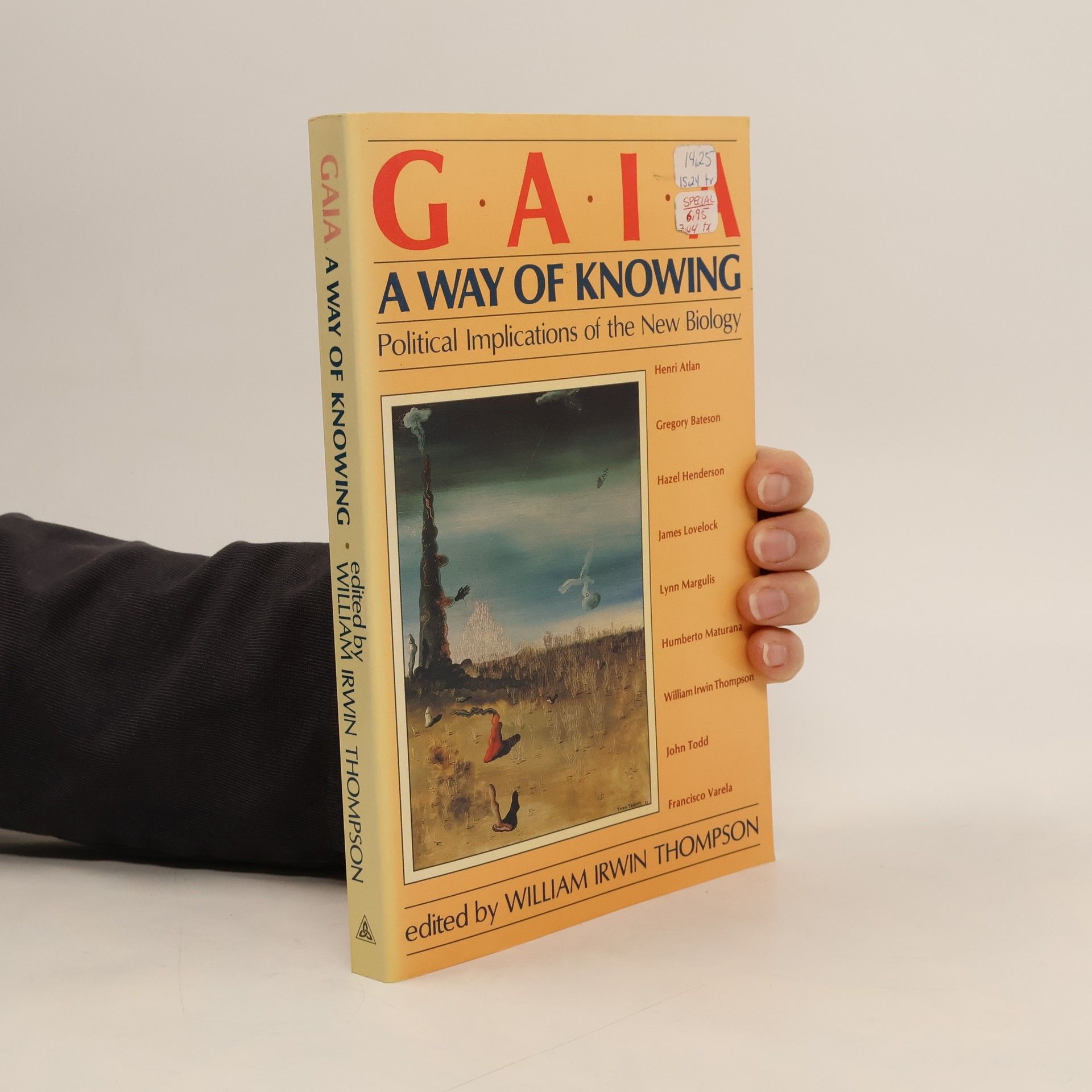The author reflects on a lifelong passion for poetry, tracing influences from classical and modern poets while exploring the Romantic tradition of descriptive meditation. After decades of writing, they focus on their experiences in Portland, Maine, crafting street poems that capture their transient existence. Despite feeling like a wanderer, the author finds solace in a mystical connection with the stars, contemplating the intersection of time and eternity. This collection serves as a personal exploration of place and identity, blending local observations with cosmic reflections.
William Irwin Thompson Livres
William Irwin Thompson est un philosophe social, critique culturel et poète américain, dont il décrit le style d'écriture et de parole comme du 'mind-jazz sur des textes anciens'. En tant que fondateur de la Lindisfarne Association, son travail explore les liens complexes entre culture, histoire et conscience. Il puise profondément dans la mythologie et les traditions religieuses pour examiner l'évolution de la compréhension humaine et des structures sociétales.






American Global Pre-Eminence
- 304pages
- 11 heures de lecture
A unique analysis that assesses how we can determine which country will be the next world leader. Will China surpass the United States as the world's leader? In American Global Pre-eminence, William R. Thompson argues that the answer depends on leads in technological innovation, energy, and global reach. These are the forces that influence the hierarchy of global power--a system which began emerging a thousand years ago and started becoming more evident after the 1490s, especially after Dutch activities in the seventeenth century and British operations in the nineteenth century. The US followed in this fashion after 1945. Yet leads do not last forever. Ironically, as it becomes clearer how technological innovation, military force, and energy power interact, the processes under scrutiny may themselves be fundamentally transforming. Thus, Thompson contends, the real policy question is not whether the US is ahead or behind China but, rather, whether it will remain possible for a single state to lead the global system. As technological innovation, energy consumption, and global reachcapability grow less concentrated, the prospects for systemic leadership shrink--even as global problems become more complex and acute. With a sweeping analysis of global power, Thompson provides a foundation for understanding the realities and possibilities of lead states past, present, and future.
The Flight to Excellence
- 255pages
- 9 heures de lecture
Der Wissenschaftler, der Philosoph, der Heilige, der Künstler, sie alle klettern auf verschiedenen Pfaden den Berg hinauf, aber je höher sie gelangen, desto näher rücken sie zusammen auf der Spitze des Bewusstseins. Jeder von ihnen erfährt auf dem Weg nach oben den Reiz einer anderen Landschaft, einer anderen Aussicht, aber keine Aussicht ist besser als eine andere.
Appell der Frauen
- 340pages
- 12 heures de lecture
»Die Rechte der Frauen im Blick«, so könnte der Text von William Thompson und Anne Doyle Wheeler auch genannt werden; doch eigentlich heißt er Appell der einen Hälfte der Menschheit, der Frauen, gegen die Ansprüche der anderen Hälfte, sie in politischer und damit auch in ziviler und häuslicher Sklaverei zu halten. Sie argumentieren gegen die Dominanz der Männer und gegen die bereitwillige Unterwerfung der Frauen. Und das in einer Zeit, in der diese durch die Heirat sogar das Recht an ihrem eigenen Vermögen verloren. Für Thompson/Wheeler ist die Versklavung der Frauen durch die Männer aber nur eine Seite der Medaille. Die andere ist es, dass die Frauen ihre Unterdrückung akzeptieren, indem sie sich selbst als Unterlegene verstehen. Die Frauenrechtler*innen Thompson/Wheeler sind konsequent, wenn sie nicht nur politische Mitsprache für die Frauen fordern, sondern diesen auch zutrauen, selbst für ihre Rechte einzustehen. Mit Appell der Frauen liegt nun eine deutsche Übersetzung von Thompson/Wheelers einflussreichem Appeal of one Half of the Human Race, Women, against the Pretensions of the other Half, Men, to Retain them in Political and Thence in Civil and Domestic Slavery vor. Die einleitende Kurzbiografie entwirft ein Bild der beiden Autor*innen und ihres gedanklichen Umfeldes.
Die pazifische Herausforderung
- 187pages
- 7 heures de lecture
Der Fall in die Zeit. Mythologie, Sexualität und der Ursprung der Kultur
- 352pages
- 13 heures de lecture
Der Wissenschaftler, der Philosoph, der Heilige, der Künstler, sie alle klettern auf verschiedenen Pfaden den Berg hinauf, aber je höher sie gelangen, desto näher rücken sie zusammen auf der Spitze des Bewusstseins. Jeder von ihnen erfährt auf dem Weg nach oben den Reiz einer anderen Landschaft, einer anderen Aussicht, aber keine Aussicht ist besser als eine andere.


